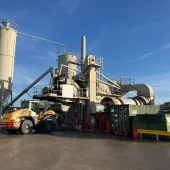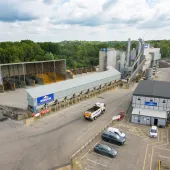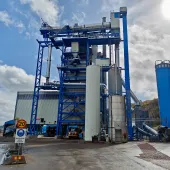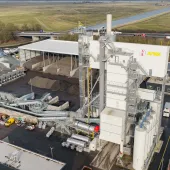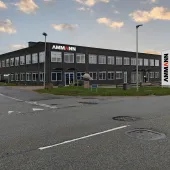Renewing Existing Mixing Plants
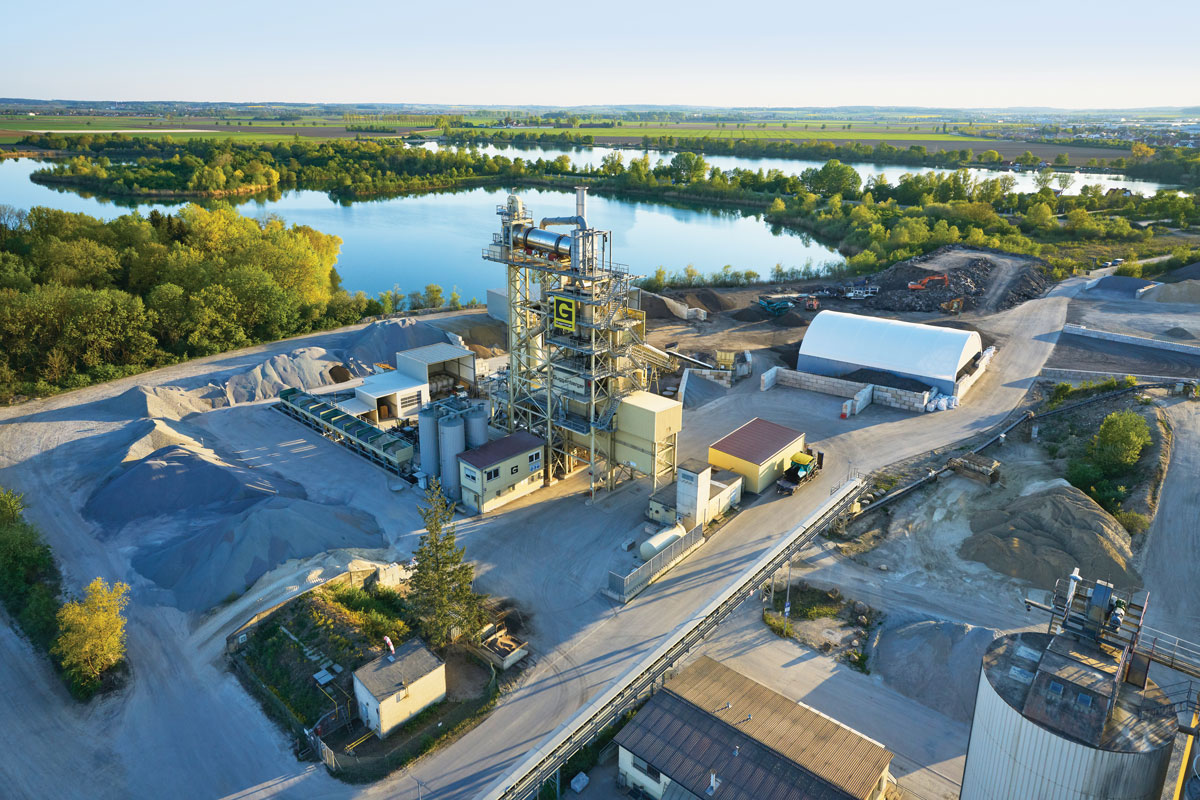
First published in the January 2022 issue of Quarry Management
Benninghoven work in partnership to renew old technology through retrofitting
The usual service life of an asphalt mixing plant is 20–30 years, if not longer. Over this period, a lot can change – requirements on formulas and qualities of mixes, for example, and often the official regulations operators have to comply with to get an operating licence.
Customers may demand new, higher-quality asphalts, which require the plant to have specific dosing options. Legislators may tighten up emissions standards. The proportion of RAP fed to the process could be increased, reducing raw material costs – but only for operators with the appropriate technology. Dust and noise protection regulations required to retain an operating licence may be made stricter – often because residential areas have expanded right up to an asphalt mixing plant that used to be in an isolated position. Alternative fuel capability may be required for the mixing plant burner.
Benninghoven, who say they can accompany customers and users through all the challenges of modernization with their own retrofit division, offer seven good reasons for a Benninghoven retrofit:
- State of the art: bringing the asphalt mixing plant up to the current state of the art.
- Protecting an existing site: ensuring that the site retains its operating licence.
- Sustainability and economy: replacement of components and integration of recycling technologies pay for themselves.
- Optimization and efficiency: modern control technology from Benninghoven improves plant performance.
- Win-win: updating the plant can also be used as an opportunity to satisfy individual requirements – serial production solutions have already been developed from customer ideas.
- Improve instead of repair: the recommendation from Benninghoven experts will leave plants in a better state after the retrofit than before it.
- All makes: Benninghoven retrofit solutions are also possible for plants from other manufacturers.
According to Benninghoven, retrofit solutions to modernize existing asphalt mixing plants make sense for lots of reasons – and are often more beneficial than investing in new equipment. In densely populated regions, a retrofit may well be the only option, as getting new local authority consent would involve a complex process and the outcome would be uncertain. When an existing plant is renewed, on the other hand, new consent becomes completely superfluous in many countries.
Benninghoven can partner with mixing plant operators in all retrofit projects – regardless of which manufacturer originally installed the old plant. From design to technical implementation to realization on site, Benninghoven experts accompany the retrofit process all the way from establishment of contact to final acceptance. They also make direct contact with the main factory, which is of particular value to plant operators, because no two mixing plants are alike. A great many solutions have to be adapted individually or even worked out from scratch to make the plant futureproof. To make sure everything comes together perfectly at the end, the procedure is divided into three steps: development of a joint retrofit plan, technical investigation and implementation at the main Benninghoven factory, and implementation of the new technology on site.
Every Benninghoven retrofit project starts with an on-site meeting. Proven Benninghoven experts will visit the customer, a written record will be made of the plant technology in situ and of all the desired changes, and photos of the plant and of the components to be renewed will be taken at this initial meeting.
‘A retrofit from Benninghoven is more or less a turnkey solution,’ said Markus Bühl, area sales manager for Benninghoven products at the Wirtgen Group subsidiary in Augsburg.
A commission which supports this statement is the project to retrofit Guggenberger GmbH’s asphalt mixing plant in Mintraching, where the aim was to renew a Benninghoven BA 4000-type plant. The focus in this case was to increase the performance and efficiency of the plant, involving among other things replacement of the dryer drum and the burner. It soon became clear that a standard drum would not fit. Markus Bühl took this challenge back with him to the main Benninghoven factory to develop a solution with the Technical Office.
‘With this plant there was a whole range of requirements which off-the-peg solutions were unable to help with,’ said Jörg Genetsch, expert in drying and dust collection technology in Benninghoven’s Technical Office. ‘However, we’re used to that with retrofit projects and can implement even this kind of project economically for the customer.’
In developing the ideal solution, Benninghoven rely on swarm intelligence – that is the expertise of the entire Technical Office paired with the experience of the fitters on site. This is because the Benninghoven Technical Office is practised in getting more performance out of old technology, and in adapting existing technical components to suit new ones. ‘We look at the old components on site; these tell us what we need to take into account and what needs improving,’ said Mr Genetsch. Once the design process is complete, the engineers prepare technical specifications and layout drawings. The team presents this entire technical solution to customer representatives and discusses it with them until the project is approved.
‘Right back at the project planning stage, it was clear that the Benninghoven professionals knew what they are talking about. Their expertise is considerable, so we felt we were getting good advice and were in good hands right from the outset,’ said Karl Weiss, mixing plant supervisor at the Guggenberger GmbH asphalt mixing plant in Mintraching.
Once the retrofit plan and all the new components have been approved, they are made in the main Benninghoven factory and transported to the job site. The customer’s plant staff and Benninghoven service technicians often form a team, as was the case in the Mintraching retrofit project. ‘And it works so well,’ said Thorsten Neidhöfer, one of the Benninghoven fitters on site.
Modern Benninghoven technology was integrated in the existing asphalt mixing plant which will allow the plant to operate in an economical and environmentally friendly way for years. The heart of this equipment is made up of the burner and the dryer drum. With oil, liquid gas, and coal dust, the new EVO JET 3 burner can now fire three fuels instead of two, which will make Guggenberger more independent of fluctuating energy costs in future. A new coal dust dosing system has been fitted for the latter fuel; its overhauled design will bring key benefits for Guggenberger in terms of functionality, safety, and fuel consumption.
Moreover, the burner is designed for higher performance and thus contributes to increasing plant performance as a whole. Drying performance has increased significantly, especially in the production of mixes such as stone mastic and mastic asphalts. In numerical terms, performance has increased from 140 tonnes/h to 190 tonnes/h.
For further information visit: www.wirtgen-group.com
- Subscribe to Quarry Management, the monthly journal for the mineral products industry, to read articles before they appear on Agg-Net.com


